News
MENA Youth Hackathon: Trust in Political Leadership

In a region where political engagement among youth has often been marred by disillusionment, the Naumann MENA Academy is striving to turn the tide. On July 30, 2024, in Amman, Jordan, the Academy launched the MENA Youth Hackathon, an ambitious initiative designed to restore confidence in political leadership among young people. This unique event brought together 17 dynamic participants from six MENA countries, all determined to confront the region’s most pressing political challenges with fresh, innovative solutions.
A Comprehensive and Engaging Programme
The Hackathon kicked off with a deep dive into Design Thinking—a methodology centered on empathy and problem-solving. This session was not just a theoretical exercise; it was a foundational step in equipping participants with the tools to tackle real-world issues. The focus on empathy and problem definition resonated strongly with the participants, highlighting the importance of understanding and addressing the diverse needs of the region’s citizens.
Following the introduction to Design Thinking, the Hackathon moved into a practical phase with a field visit to the Hayatt Civil Society Center (Rased). Here, participants had the opportunity to meet with Executive Director Amro Nawayseh and his team. This visit was more than a simple tour; it provided a window into the workings of modern democratic innovation in action. Participants were introduced to cutting-edge methods of election monitoring and government oversight, which served as a rich source of inspiration for their own projects. The discussions at Rased emphasized the importance of transparency, accountability, and civic engagement—key pillars of a healthy democracy.
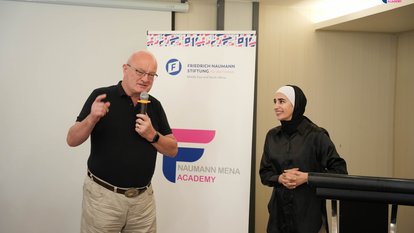
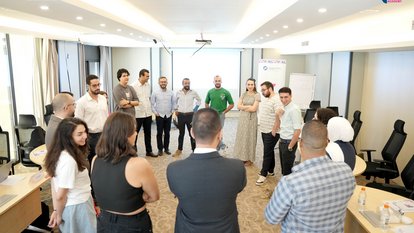
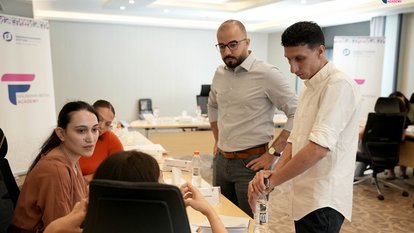
As the Hackathon progressed, the energy in the room grew palpable. The third day marked a significant milestone as participants took the stage for their first Pitching Session. Here, they presented their initial concepts to a panel of mentors, receiving valuable feedback that would shape the next stages of their projects. The mentors, drawing from their own experiences in political and social innovation, provided insights that challenged the participants to think critically and refine their ideas.
With the initial pitches completed, the teams entered an intensive period of project development—dubbed "Hacking Time." This phase was characterized by collaboration and creativity, with participants working tirelessly to bring their ideas to life. The day culminated in a second Pitching Session, where the refined projects were presented. The progress made by the teams was evident, with each presentation reflecting a deeper understanding of the issues at hand and a stronger commitment to finding viable solutions.
During the Hackathon, participants had the chance to ask Mr. Ulrich Lechte, a Member of the German Parliament about strategies for increasing youth involvement in political parties. Lichte shared his perspective on this crucial issue, emphasizing that the key to capturing the interest of young people lies in merging ideology with enjoyment. "When you combine ideology and fun," Lichte stated, "you grab their interest." He elaborated that creating engaging and enjoyable experiences around political themes can make the process more relatable and exciting for the youth. By fostering an environment where political discussions are paired with interactive and entertaining elements, political parties can create a more appealing and inclusive space for young people, thus encouraging their active participation and investment in political processes.
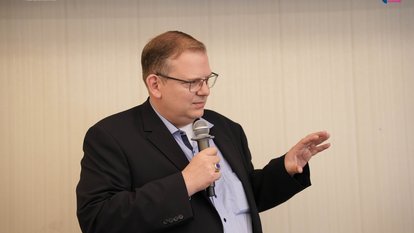
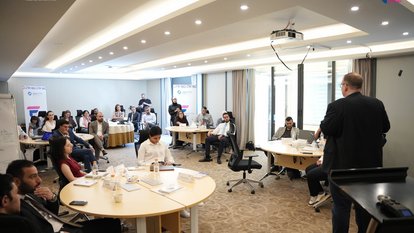
Unveiling Innovative Solutions and Celebrating Success
The MENA Youth Hackathon was a showcase of creativity and determination, with participants addressing a range of critical issues facing the region. One team focused on the urgent need to increase youth engagement in politics, proposing strategies to bridge the growing gap between young people and political institutions. Their approach emphasized the use of digital platforms and social media to create more accessible and relatable channels for political discourse.
Another group turned their attention to the rise of populist rhetoric in the Arab world, analyzing its impact on civil society. They developed strategies to counteract the negative effects of populism, including campaigns to promote media literacy and critical thinking among the public. Their solutions were aimed at empowering citizens to recognize and resist manipulative political messaging.
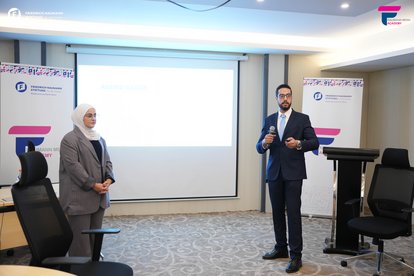
The highlight of the Hackathon was the presentation by the winning team, Project “Nakheb.” This group tackled the communication gap between political parties and the youth, proposing an innovative solution to enhance dialogue and understanding. Their project focused on creating platforms that facilitate direct communication between political leaders and young citizens, fostering a more inclusive and participatory political process. The team’s solution was not only innovative but also practical, addressing a clear and pressing need within the region’s political landscape. As a reward for their hard work and creativity, the team was awarded the opportunity to attend the IAF Seminar in Gummersbach, where they will further develop their ideas alongside other young leaders from around the world.
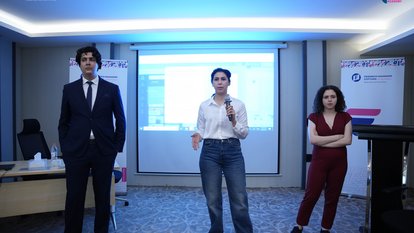
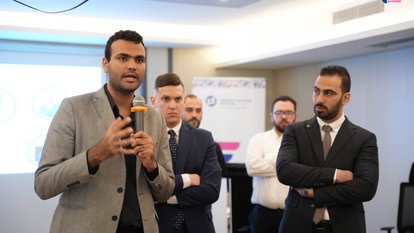
Beyond the Hackathon: Laying the Foundation for Future Initiatives
While the MENA Youth Hackathon was a significant event in its own right, its impact is expected to extend far beyond the few days of intensive work in Amman. For the Naumann MENA Academy, the Hackathon represents a foundational milestone in its broader mission to engage youth across the MENA region in meaningful political discourse and action. The event not only highlighted the innovative ideas and potential of the participants but also set the stage for future initiatives that will build on these successes.
In the coming months, the Academy plans to develop a new initiative that aligns with the projects created during the Hackathon. This initiative will aim to further advance the goals of youth engagement and political innovation, drawing on the lessons learned and the momentum gained during the event. By continuing to support the participants and their projects, the Academy hopes to foster a new generation of young leaders who are equipped to address the challenges facing their communities and the wider region.
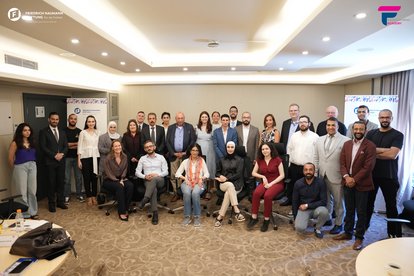
The MENA Youth Hackathon has shown that when given the opportunity and the right tools, young people in the MENA region are more than capable of driving positive change. As these young innovators return to their home countries, they carry with them not just the ideas and skills they’ve developed, but also a renewed sense of purpose and hope for the future of political leadership in the region.
